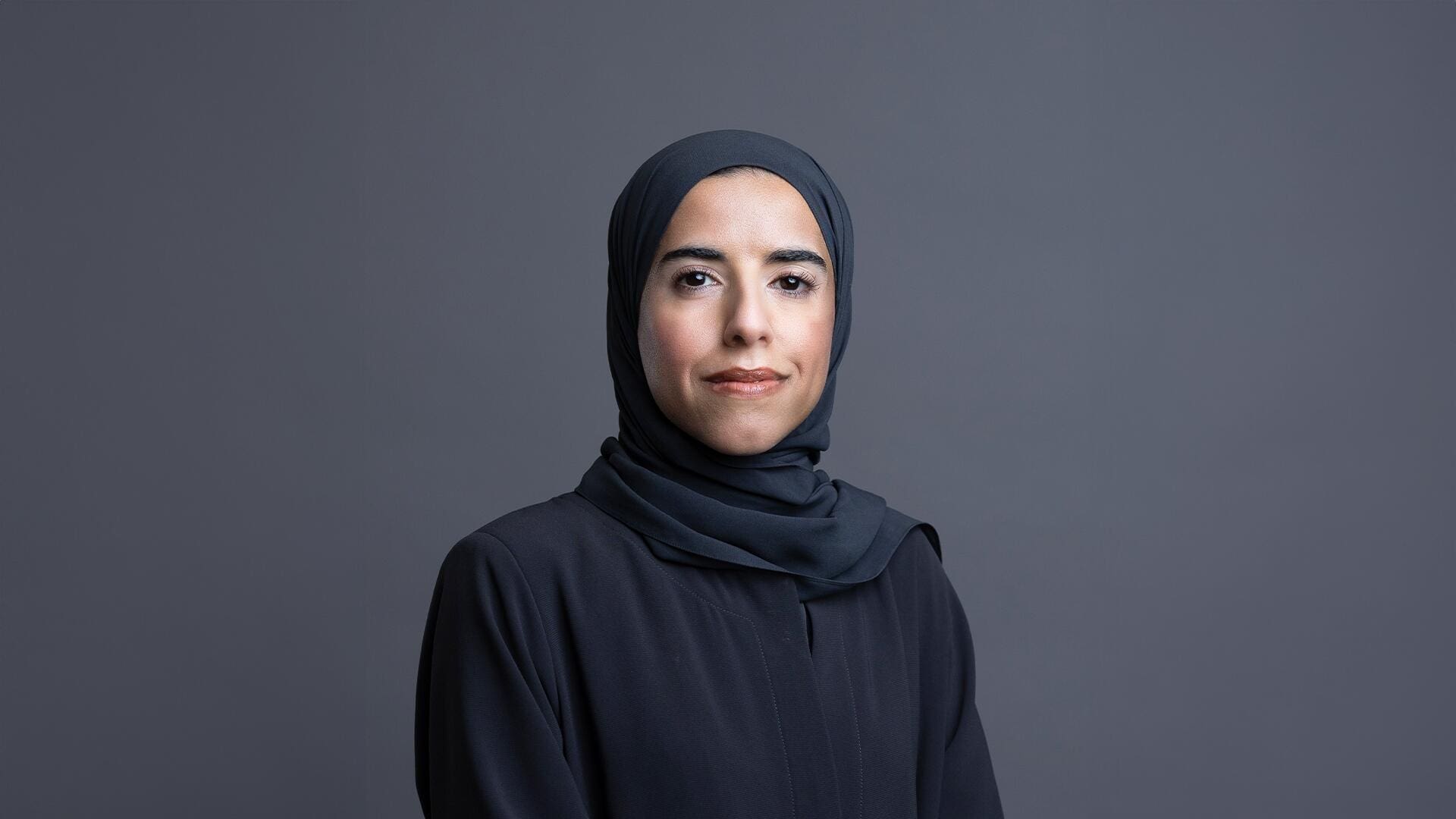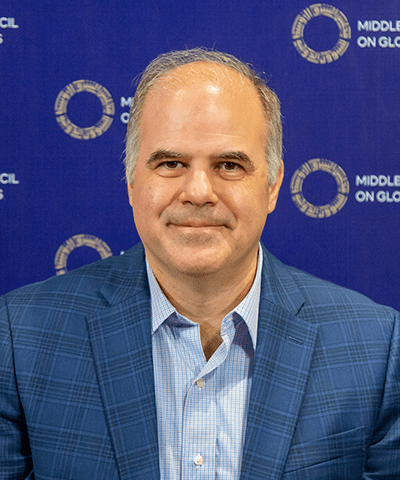Dossier Launch:
Carbon Emissions Reduction Strategies for Qatar
April 23, 2025
Summary
Qatar has placed sustainable economic development and environmental concerns at the heart of its National Vision and Development Strategy, setting an ambitious target of reducing greenhouse gas emissions by 25 percent by 2030. Notable progress has already been achieved, especially when considering newly installed renewable energy capacity in Qatar and several initiatives aimed at increasing energy efficiency in built environments. Moreover, Qatar’s contribution to global decarbonization efforts through LNG exports puts it in a unique position in the global transition away from carbon-intensive fossil fuels. However, to continue making progress, new mitigation strategies and pathways should be adopted.
The Middle East Council on Global Affairs and Earthna Center for a Sustainable Future have partnered to launch a dossier that highlights these strategies and pathways, and how they can be adopted by Qatar to realize its ambitions for decarbonization. Consisting of ten chapters, the dossier explores the role of LNG, renewables, low-carbon technologies, carbon markets, and other approaches. These strategies offer pathways for emissions reduction and provide avenues for economic diversification and growth, thus ensuring Qatar’s sustainable development.
To discuss the key insights and recommendations of the dossier, the Earthna Summit hosted the launch event of the dossier, featuring four authors. The dossier editors, Nader Kabbani and Muez Ali, moderated a 45-minute panel discussion and 15-minute Q&A session. The discussion revolved around how Qatar can continue to make progress towards realizing the sustainable development goals underlined in the national vision.
Speakers:
Dhabia Al-Mohannadi, Assistant Professor, Hamad Bin Khalifa University and Texas A&M University in Qatar
Alexandra Soezer, Director, GORD Climate Action Center of Excellence
Marcello Contestabile, Chief Economist, Qatar Environment and Energy Research Institute
S. Duygu Sever, Post-Doctoral Associate and Instructor, Carnegie Mellon University Qatar
Dhabia Al-Mohannadi, Assistant Professor, Hamad Bin Khalifa University and Texas A&M University in Qatar
● It is important to understand the strategic importance of broader political, social, and institutional factors that drive Qatar’s energy choices and sustainability pathways.
● There is a need to rethink the relationship between humans and nature, urging decision-makers to prioritize education and mindset shifts alongside technological adaptation.
● It is also important to include local voices and knowledge in designing energy transition strategies, framing sustainable development as a people-centered transformation.
Alexandra Soezer, Director, GORD Climate Action Center of Excellence
● Qatar is not starting from scratch in the carbon market, having already participated in the Clean Development Mechanism under the Kyoto Protocol.
● Under the Paris Agreement, credits transferred abroad cannot count toward Qatar’s national targets, making the careful management of carbon markets crucial to avoid opportunity costs.
● International carbon credits are strategic tools that should only be transferred when they bring tangible benefits such as access to advanced technologies or strategic partnerships.
● There is a need for a clear regulatory and institutional framework to ensure that credit authorizations uphold environmental integrity and align with international standards.
● Qatar’s technical expertise is an asset that could be leveraged by investing in carbon-reducing technologies abroad, allowing local firms to export sustainable infrastructure in exchange for credits.
● Carbon revenues are not merely financial instruments but rather mechanisms to support Qatar’s broader vision for long-term, low-carbon development.
Marcello Contestabile, Chief Economist, Qatar Environment and Energy Research Institute
● Climate mitigation goals must be synchronized with sector-specific development strategies such as manufacturing, logistics, and tourism.
● Without integrated planning, climate costs could escalate and jeopardize the competitiveness of Qatar’s diversification sectors.
● Carbon capture and storage (CCS) will play a central role in achieving net-zero emissions while continuing to grow energy-intensive industries.
● Uncertainty around future economic growth rates and emissions targets necessitates flexible, scenario-based policy tools to guide strategic planning.
S. Duygu Sever, Post-Doctoral Associate and Instructor, Carnegie Mellon University Qatar
● Qatar has no plans for traditional nuclear plants but has invested in small modular reactors (SMRs) through a partnership with Rolls-Royce. SMRs could offer a flexible and cost-effective solution for meeting high energy demands, particularly in data centers and desalination, if commercial viability improves.
● Qatar’s interest in SMRs reflects broader regional trends and the urgent need to decarbonize energy-intensive processes such as desalination, which currently depend on fossil fuels.
● Ongoing efforts in nuclear policy engagement and human capital development are evident in Qatar’s co-hosting of international events on women in nuclear science.
● Decarbonization must be approached holistically and remain people-centered, with energy transitions that prioritize community participation, cultural heritage, and long-term education.
During the audience Q&A and final reflections, panelists discussed the limited viability of geothermal energy in Qatar and highlighted solar deployment as a key opportunity, particularly when supported by carbon finance. Small Modular Reactors (SMRs) were recognized as promising but still uncertain in terms of economic and environmental feasibility in high-heat contexts. Responding to questions on Qatar’s emissions reduction efforts, speakers noted the country’s underreported yet meaningful progress, including
strides in electric mobility and petrochemical advancements. The conversation emphasized the importance of a holistic decarbonization strategy rooted in both supply and demand-side reforms, institutional readiness, and local engagement. Panelists also warned against market fragmentation in global carbon trading and stressed the need for harmonized regulatory frameworks. The event closed with a strong message for GCC countries to remain committed to proactive climate action to avoid costlier transitions down the line.
Speakers

Dhabia Al-Mohannadi
Associate Professor, College of Science and Engineering, Hamad Bin Khalifa University

S. Duygu Sever
Post-Doctoral Associate and Instructor, Carnegie Mellon University Qatar

Marcello Contestabile
Chief Economist, Qatar Environment and Energy Research Institute



